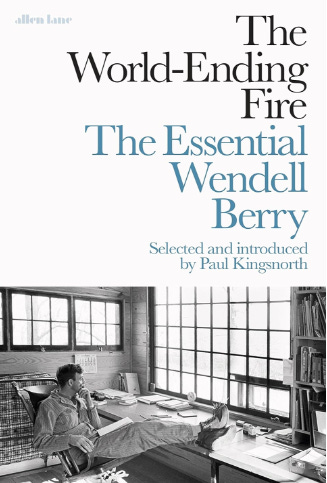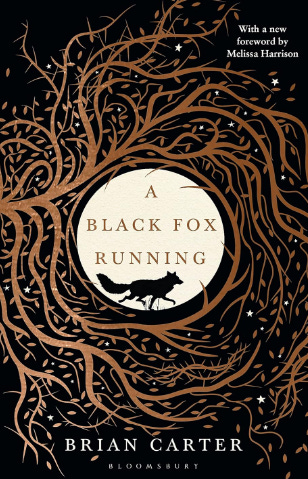On Buffalo Peaks ranch in Colorado is a small library full of books about the land, nature, and community. It’s called the Rocky Mountain Land Library, and it’s a place where land and literature come together. The curators have plans for the place to become a residential library/learning centre focused on people, nature, water and the land, as well as linking rural and urban communities. I’d love to visit one day.
In appreciation of their work, I’m creating a virtual space in RedLands for the West Country Land Library. It’ll be a space to share books and think about the links between literature, the land, and the communities who live in and off the land -- and perhaps in time, it’ll host a book club here if there’s interest. (And who knows, maybe one day it’ll be a bricks and mortar place. (Or wood. More my style)).
In this, the first letter from the West Country Land Library, here’s a cross section of books that have taught me about land, community, and how we share creation. Perhaps it’ll serve as inspiration for some last minute Christmas gifts too -- or for your own reading in that quiet, delicious space between Christmas and New Year.
In no particular order…
The Quickening: Creation and Community at the Ends of the Earth, by Elizabeth Rush (2023)
Pulitzer shortlisted journalist Elizabeth Rush explores personal and planetary uncertainty when she joins a research vessel bound for Thwaites glacier (known as the ‘Doomsday glacier’ for the impact its melting would have on global sea-level rise). I valued this book - it offers up the voices of a diverse community, and brings community and motherhood into the conversation on climate change. I wrote a review of it for Plough Magazine, you can read it here.
The Solace of Open Spaces, by Gretel Ehrlich (1985)
In a series of linked and often lyrical essays, Ehrlich documents the vastness of Wyoming and its impact on humans by sharing her experiences of living and working there. I return to this slim book often - to feel feel humbled, expanded, enlightened.
Lots of books by Wendell Berry, but for now… The World Ending Fire (2017)
For decades, Berry has written essays, poetry, and fiction alongside working his farm in Kentucky. All of his work is, in one way or another, a tribute to the land and its people. “What we stand on is what we stand for” he says, whilst reminding us too that “it all turns on affection.” This collection brings together some of his best essays.
A Black Fox Running, by Brian Carter (1981)
Set in the aftermath of the second world war on Dartmoor in the West Country, the story follows the title character Wulfgar as he and others live in the shadow of a haunted and bitter trapper. Author Brian Carter, who knew Dartmoor intimately, captures the spirit of the moor alongside a compassion for the humans who struggle to make a living there. It’s a good book for fans of Watership Down and Tarka the Otter. And for fellow Dartmoor lovers, Carter’s non-fiction book and accompanying film Dartmoor: A Threatened Wilderness is insightful.
Moortown Diary, by Ted Hughes (1979)
Another book that conjures the rhythms of the West Country. Hughes wrote this improvised journal of verses whilst working with his father-in-law on Moortown Farm near Winkleigh (not too far from where we live). The verses capture farming and the land in all its joy, despair and mud. The later-published version is worth reading for the introduction and notes which were added in 1989 - they capture the seismic shifts that happened (and are still happening) in farming.
The Woodlanders, by Thomas Hardy (1887)
I value how Hardy depicts community, and the way he almost merges - through particular characters - human community with the wider community of the natural world. I think it’s an underrated gem.
The Perfection of the Morning, by Sharon Butala (1994)
Butala left an urban academic life to marry a cattle rancher and make a life in south west Saskatchewan. Her book explores the personal, practical and spiritual connection to her new place and to creativity. In places, the book echoes Ehrlich’s Solace of Open Spaces.
Soil and soul: People versus Corporate Power, by Alastair McIntosh (2001)
This book brings together theology, mythology, economics, ecology, history, poetics and politics. McIntosh explores threats to the old way of life in his native Hebrides, and shares what residents on the Isle of Eigg have to teach us about community empowerment and land reform. It is heartening and rousing.
There’s lots more books we’ll virtually rummage through in the West Country Land Library over the coming months. Are there any you’d like to share? - leave a comment or send me a message, and I’ll add them to our virtual shelves.
Lastly, thank you and welcome to new subscribers to RedLands, and to those subscribers who have chosen to upgrade to paid to help support my work and make it more sustainable. It is so encouraging, and I appreciate you! All content is free for now, but there’ll be some extra paid subscriber offerings coming in 2024.
With love,
Elizabeth












There are some great books on here Elizabeth! Many of them I shall be adding to my book list.
Here are a few extra ones I have benefited much from:
Uprooted -Grace Olmstead.
English Pastoral - James Rebanks
Confessions of a Recovering Environmentalist - Paul Kingsnorth
Land Healer - Jake Fiennes